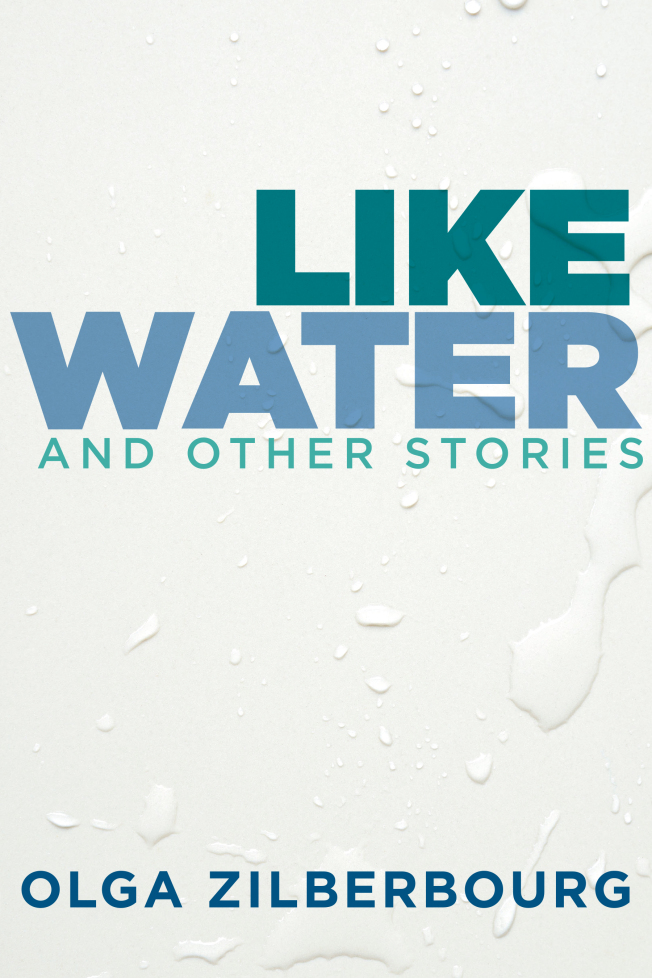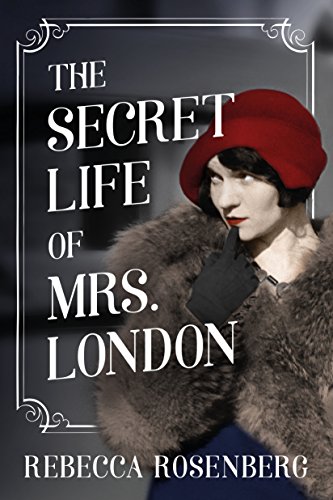There’s been a watery theme here on femmeliterate lately, with Angélique Jamail’s The Sharp Edges of Water and Lauren K. Alleyne’s Honeyfish, and that’s in addition to the water images I keep choosing for my author blog, The Writing Well. That theme continues with Olga Zilberbourg‘s Like Water and Other Stories, due out September 5 from WTAW Press. It’s lauded as her first English-language collection (she’s published three story collections in Russian) and Zilberbourg’s proficiency with the form is clear; each story, from the very short to the standard length, feels like a lesson in craft, detailed, efficient, precise.
There is also a fluidity, a shape-shifting quality to the collection that surprises and enchants. Part of it comes from the prose, which has a balletic grace, which flows and hums like the steady whirr of a pool filter, pushing the reader along with that sense pool filters give one, of being both gratified by its steady work and slightly alarmed at the mechanical complexity. Vague alarm characterizes the emotional tone of many of the early pieces, which all feel very precisely rooted in a single sensibility and told from a single voice, one intelligent, detached, curious, but also unwilling to take large risks. It is the voice of a mother and an academic, someone with Russian roots and an American life, with the problems of a mother and a professor, a tender heart, and a wish for things to remain quiet and still.
At first, I must admit that while I admired the language, I didn’t feel like the stories were saying anything new to me. My real-life problems are those of a mother and an academic living an American life. I appreciated the superb prose and the specific, well-grounded imagery, and the wish that things would remain quiet and still, but this was all familiar. I enjoyed the magical elements in “Evasion” and its premise that, as they age, humans grow ever larger, until they outdistance the ability to maintain relationships. As a novelist on the hunt for an agent I nodded along to the metaphor of “Dandelion,” in which the narrator ships her child off to a New York agent who tries and fails to sell it to publishers. And I liked the gentle absurdity of “My Mother at the Shooting Range,” even though it told me less about the mother than about shooting ranges, places that are also not foreign to me.

But then I got to “Doctor Sveta.” Doctor Sveta finds herself on a Soviet cargo ship, headed to Cuba during the missile crisis, having to perform new medical procedures on her fellow naval passengers while in the middle of the ocean. I started paying attention. I couldn’t tell you now about the narrator of that story, the woman hearing Doctor Sveta’s story; her concerns were with reproductive fertility, not one of my interests. But I started cruising through the stories, hungry for this world I knew nothing about.
And I started appreciating the variety of characters and situations in the stories, many of which are short and feature women in vaguely absurd situations: taking a retreat from work, spacing out in traffic, finding the store that carries the bonbons her husband likes is going out of business. Stories like “Janik’s Score” and “My Sister’s Game” took us back to Russia, or at least a childhood in Russia, but the concerns don’t seem particular to the place, rather more universal losses: a young adolescent sees her crush behave badly, and has to help her aging grandmother after a fall; another young girl watches her sister be teased by merciless boys while playing badminton without a net.
“Sweet Porridge,” too, about the narrator rereading a Grimm’s fairy tale with her son, deals with the familiar parental issue of wondering how to teach your children just how good they have it. Life in the Soviet Union before the dissolution was what I wanted to know more about, but it turns out life in the Soviet Union before its dissolution was, for the narrators of these stories, not much different in its emotional quality from life growing up in the placid American Midwest.
And that turns out to be the most alluring and illuminating quality of these stories: their utter, intensely felt specificity in capturing a shared human concern. My favorite story, “Ada at Twelve and a Half,” felt of these the most utterly specific and intensely imagined, the kind of story that reads not like a fiction but a detailed reporting of an actual event, the log of an inner life. It’s about a little girl who wishes she didn’t have to go to school–who wants so much to walk past it to anywhere, anything must be better than this, she wants so much to be someone, somewhere different–but she ends up in her classroom “where she will sit, trying, and failing, to accept the ordinary.”
I call them universal human concerns, but perhaps they simply seem familiar because so many deal with girls and women and the longing for connection, which is what I write about, too. Perhaps that’s the reason the narrative voice feels so familiar; it could be my own, though it isn’t. But the concerns at the core of each these stories, individually and collectively, feel relatable and vivid and real. LIKE WATER, though I still fail to see anything really watery about it, is compelling, finely crafted, and lets you watch a very gifted writer flex her imaginative muscles in all sorts of directions. These stories will leave you thirsty for more.


